





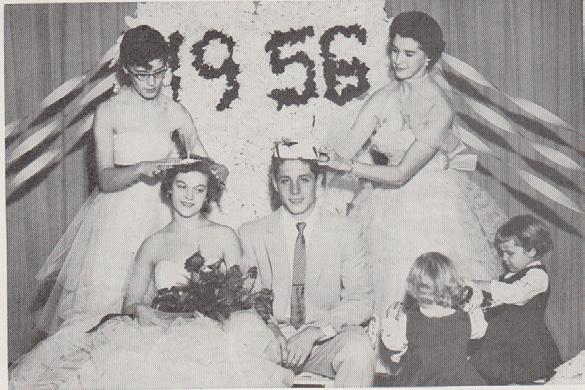


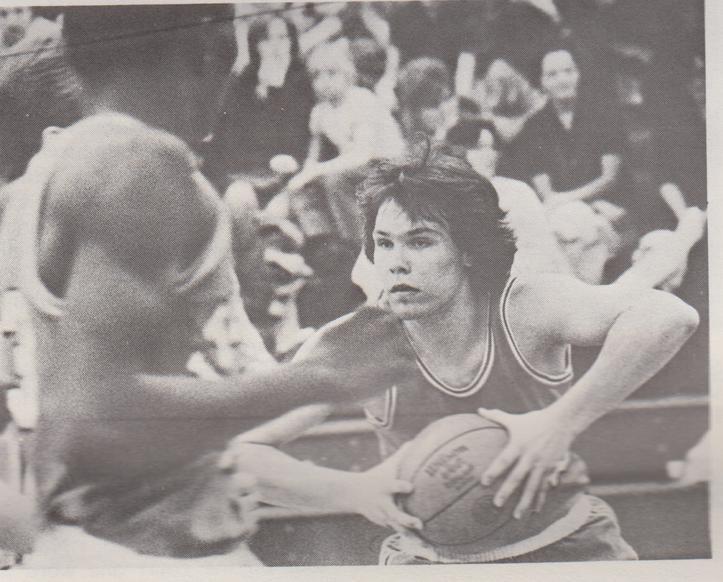
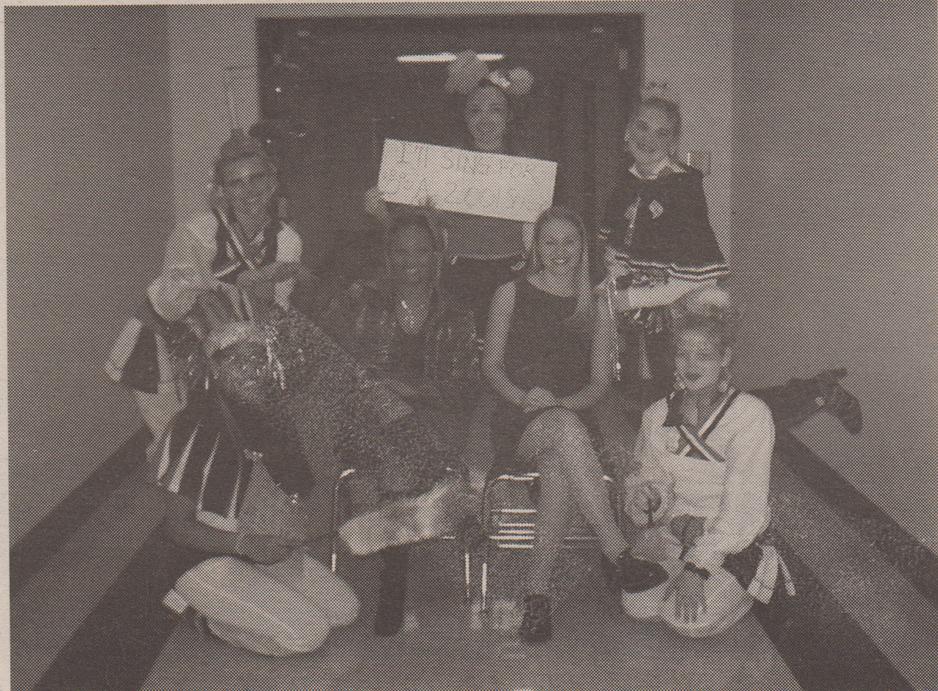








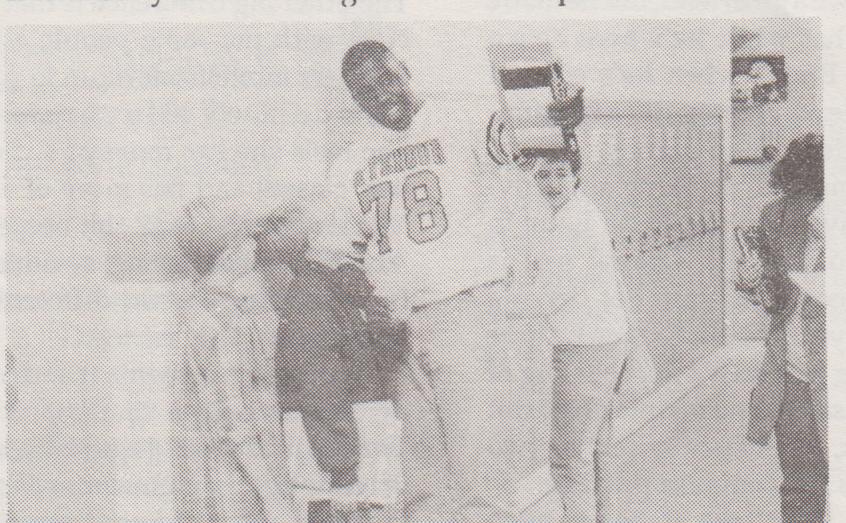


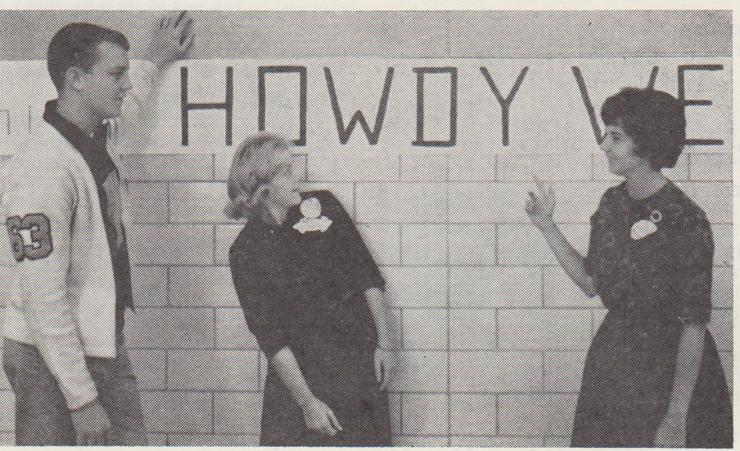







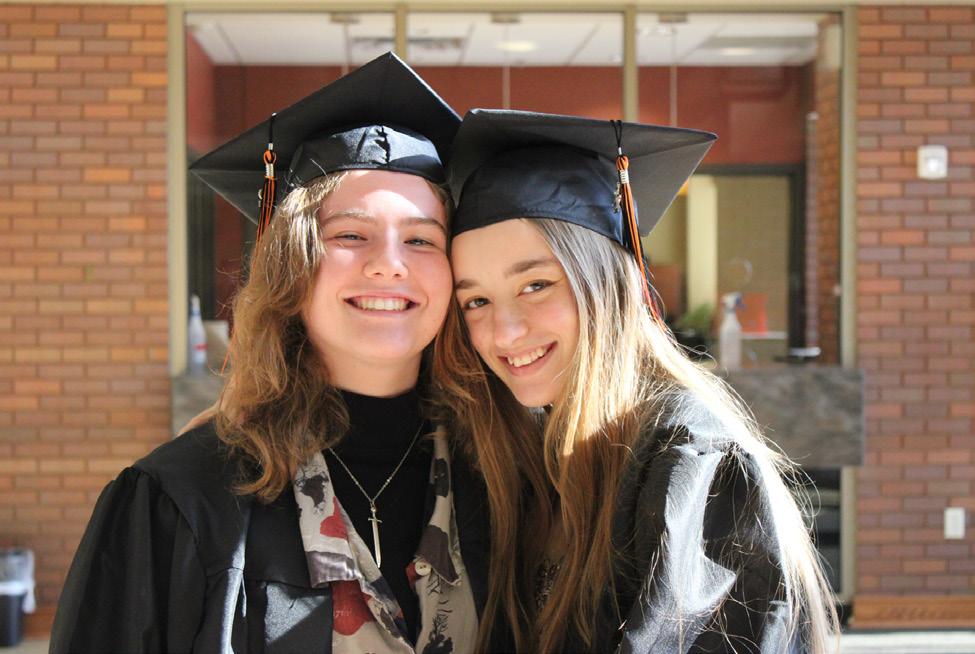
















































Special Edition Editor: Layla Fouche
Visual EIC: Danielle Haynes
Content EIC: Chloe Sapp
Production EIC: Jennifer Huerta Lopez
Online Editor: Leanna Duncan
Opinion and A&E Editor: Tori Pratt
Social Media Manager: Julia Lohnes
News and Spotlight Editor: Caroline Groceman
Adviser: Ron Steinschriber
Staff Members: Mya Cates, Elizabeth Dobbs, Billie Ford, Caden Gaither, Peyton House, Jack Jamison, Allison Madrid, Kya Merriman, Trinidy Millsapp, Amareona Muhammad, Dan Mutegeki, Mariam Neeb, Logan
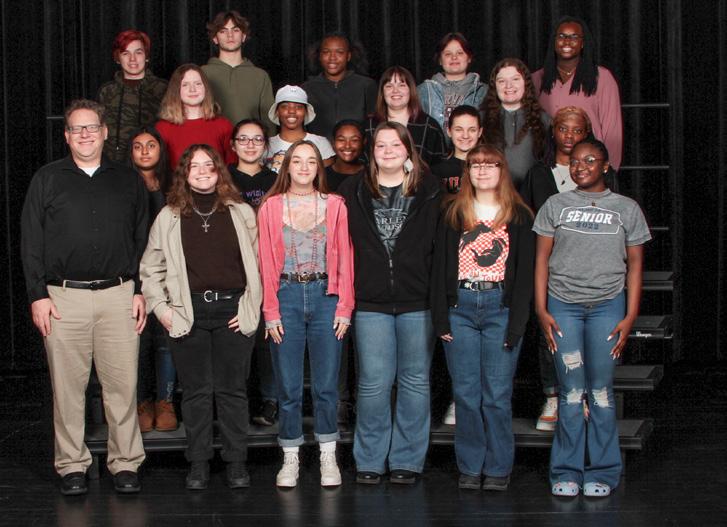
community whose nickname was the Peppers. When the school created a newspaper in 1923, the Peppers put up a box in the middle of the library where students could submit story ideas. Our newspaper is literally named after the Pepper’s Box.
Overall, Alivia Pearia, Skylar Powers, Jimena Rosales-Martinex, Conrad Sentman, Margaret Susovica, Cinthia Talbott Perdomo, Hallie Thornburgh, Brandon Treat, Klayton Wilkinson
This is my 14th year serving as the adviser of the Pepper Box. When I first got here in 2009, I had very little knowledge of the history of our school and its newspaper. I had seen recent copies and I had some ideas about what I could personally bring to continue raising it to a higher standard, but it wasn’t until I received an old box with copies of all of the old Pepper Boxes that I truly understood my role as the adviser.
Lets start with something that everyone asks about our newspaper. The name “Pepper Box” was coined in 1923. The school used to have a pep squad to bring positive cheer to the
We are lucky enough to have issues that date back all the way to 1923. I’ve been astonished to be able to see what mattered to high school students over the last 100 years. I can feel the connections to the past as I look at all the faces of Ritenour students throughout history. I have also been very interested to find out interesting facts about the school throughout the years, for example, that for six years in the late 1980s and early 1990s, the name of the Pepper Box was changed to Husky Headlines.
Unfortunately, I have also gotten some inside looks at some of the negative parts of our history through the newspapers archive. Stories about race, gender, violence, war, and illness litter the school newspapers of the last 100 years, reminding us
that we often coexist with opposing emotions both in our small school community and the larger national community. The beauty of a high school newspaper is that we are a publication that must find space to highlight centralized school news, like who made the homecoming court, while also reporting national issues like the COVID crisis.
I have been very fortunate to be in this position for so long. I have had wonderful staff members over the years, and am very proud of all of them, and the work we have produced. I know that I am just a small cog in the large machine, but to continue on a tradition and modernize it is a special honor. The longer I have been here, the more I start to feel like the keeper of school history, and it is a position in which I take much pride.
Thank you for reading, enjoy our look at the last 100 years of the Pepper Box, and thank you for continuing to read and support the Pepper Box in the future.
- Ron Steinschriber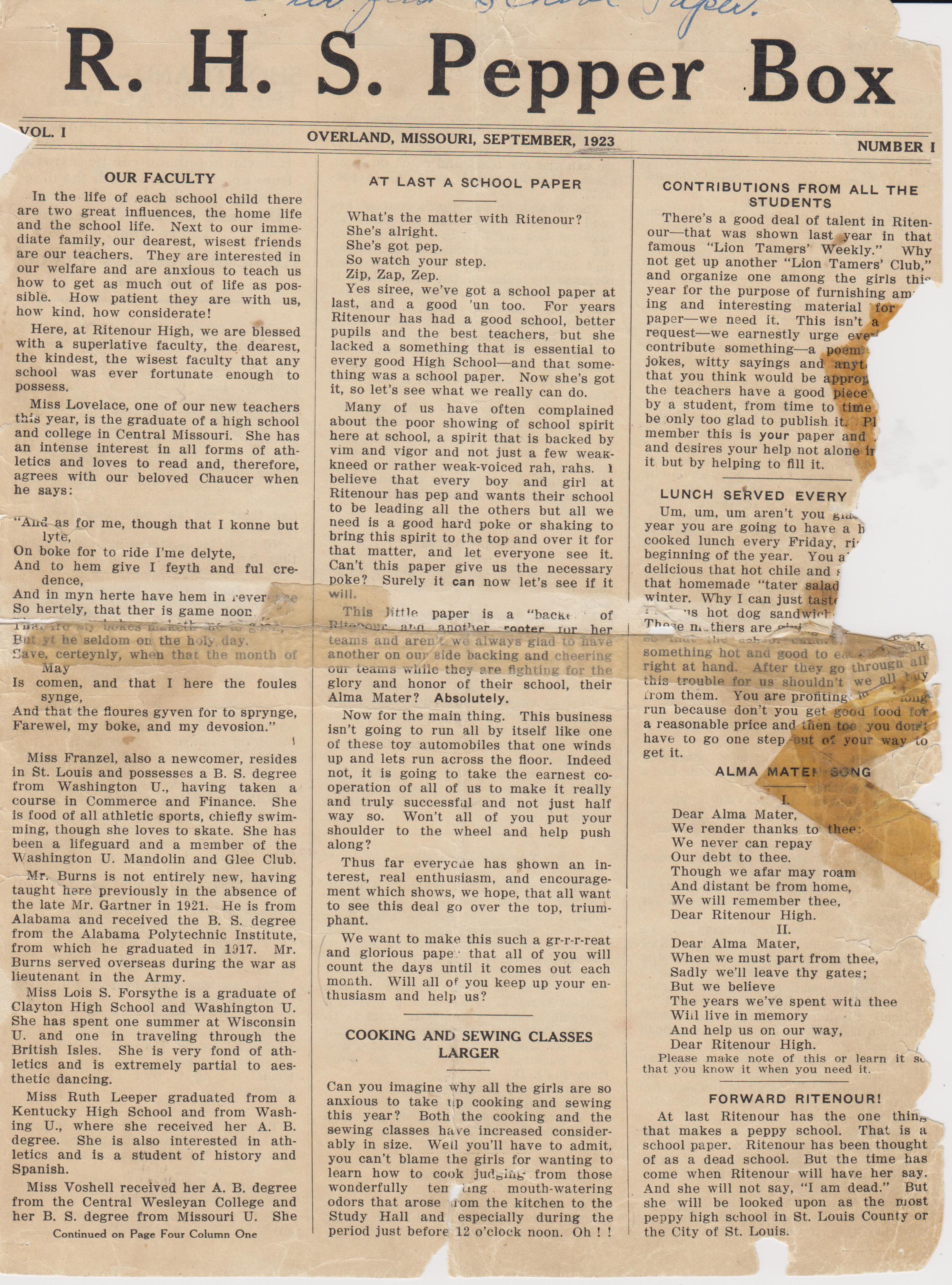



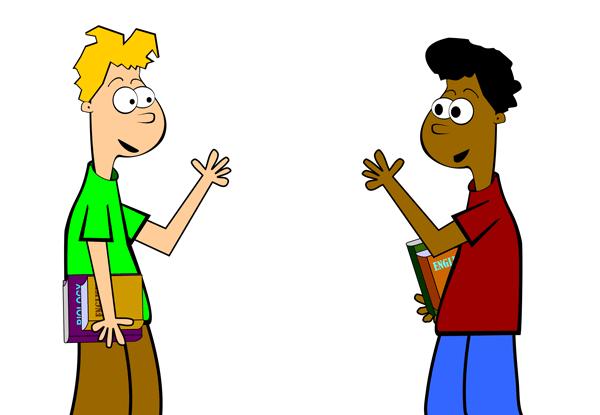
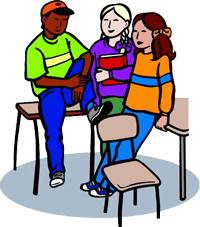 By: Layla Fouche
By: Layla Fouche





1952
Six students at RHS started the white buck trend of shoes for girls.

Bonnie Blatz shows off two styles popular in the early 1980s - Prep and Western



Leilani’s fashion column catered to girls attracting football players, either through muted plaid jumpers, or a “mantailored” look, which included a long sleeved collarless blouse, blazer and pencil skirt.

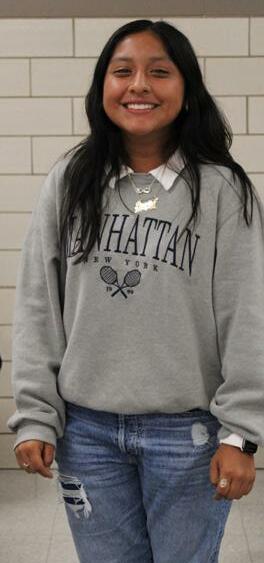
Students were dressed in “hip hop” and “alternative” clothes, but plaid pants, tye died shirts, bell bottoms and bowling shoes made a comeback.


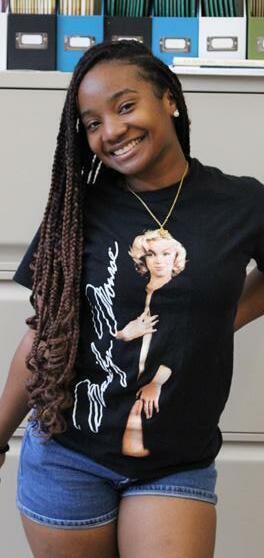


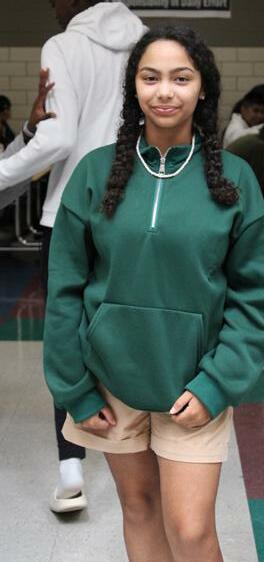
The school board passed a student council bill adding shorts and tank tops to the girls dress code after March 20 of a school year. Prior to this, it was against school dress code for girls to wear shorts.

Styles included denim jackets, hoodies, cargo shorts, skinny jeans, Nike socks, mismatched socks, boots and Vans
Styles from left to right. English teacher Louise Haar-Chapman shows off the casual professional teacher look with a tank top. Senior Adriana Gutierrez Gaona wears cargo pants. Senior Charli Holmes embraces the graphic tee trend. Senior Maria Ventura wears a collared crewneck to school. Junior Allison Madrid goes comfortable in a sweatshirt set. Senior Aundre’A Berry wears her yoga pants for comfortable attire. Senior Blake Dingledine struts around with his Bass Pro hat. Orchestra teacher Blake Hernton is often seen in upscale teacher outfits.
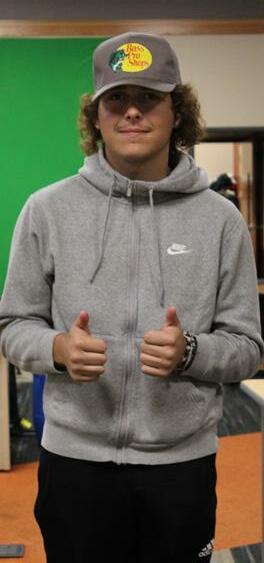



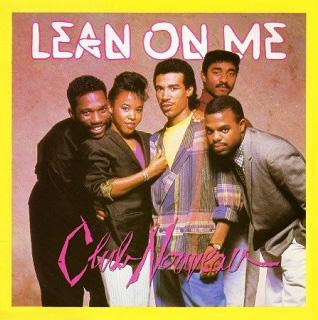
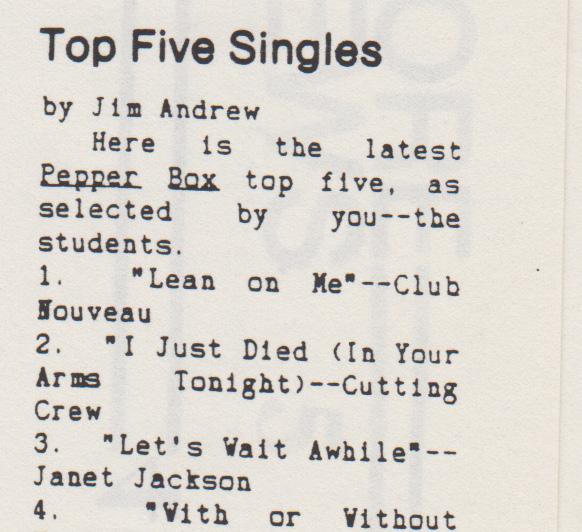

 Photo courtesy of Wikipedia
Photo courtesy of Wikipedia
Photo courtesy of Wikipedia
Photo courtesy of Wikipedia
Photo courtesy of Wikipedia
Photo courtesy of Wikipedia
Photo courtesy of Wikipedia
Photo courtesy of Wikipedia
Angel Grams were letters that you could write to a friend along with a piece of candy and a balloon. These Angel Grams were offered during the holidays, and the money raised from their sale would be used for a cause for charity. We currently sell Candy Grams without the balloons, and Valentines Day carnations.


2022 Prices: (from Dairy Queen)
Banana Splits: $5.29
Sundaes Malted Milks: $3.99
Small Sodas: $2.29 Small Sundaes: $3.49 Small
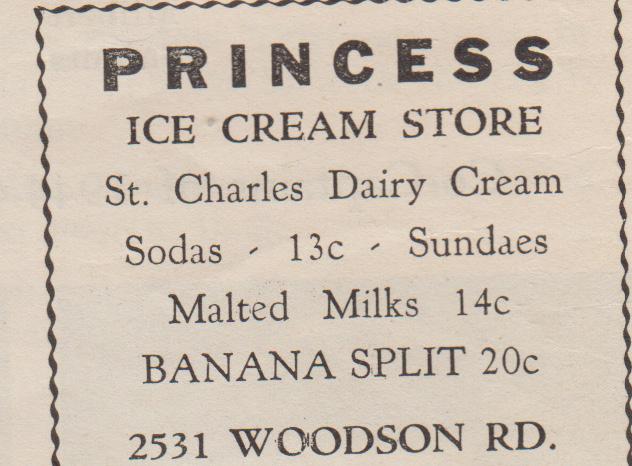
The enrollment in 1931 was 534 students total. In the 2022-2023 school year there are 488 freshman, 467 sopho mores, 478 juniors, and 371 seniors for a total of 1,804 students.

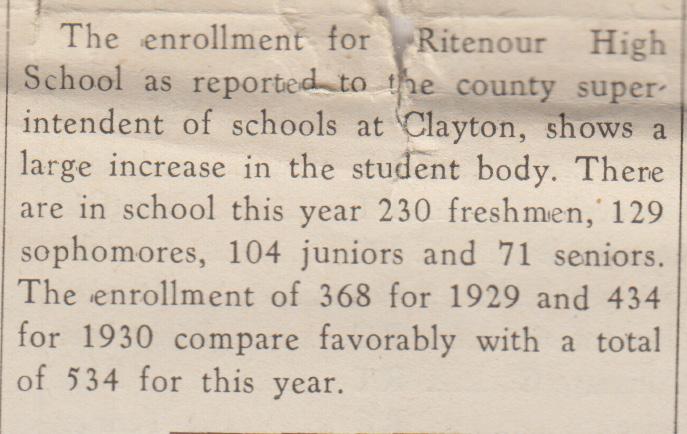
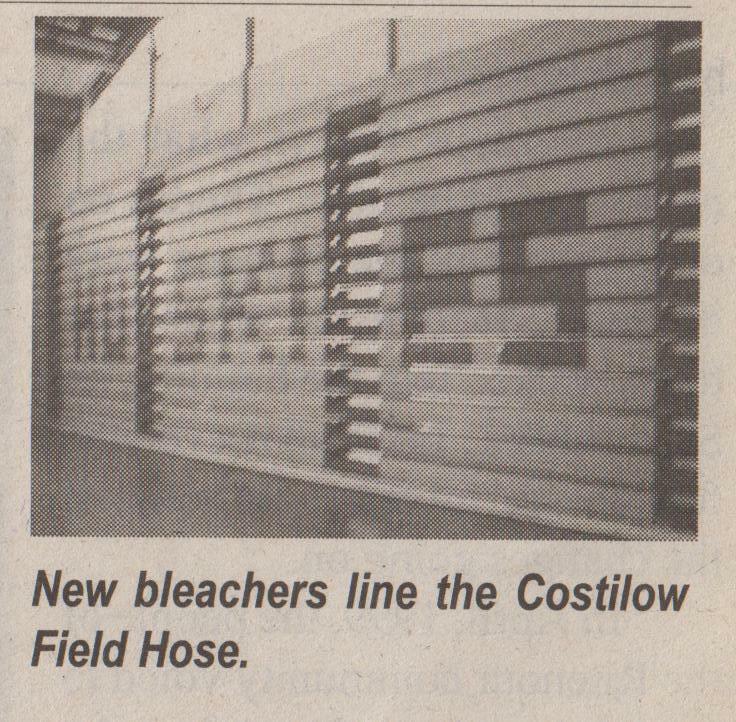
In 1999, the softball and baseball field was put into place and it currently still looks exactly the same. Also in 1999 the gym bleachers were put into place and they still look exactly the same as well. In the 2000s the school cafeteria got remodeled and up until today one of the only differences is that we no longer have round tables.
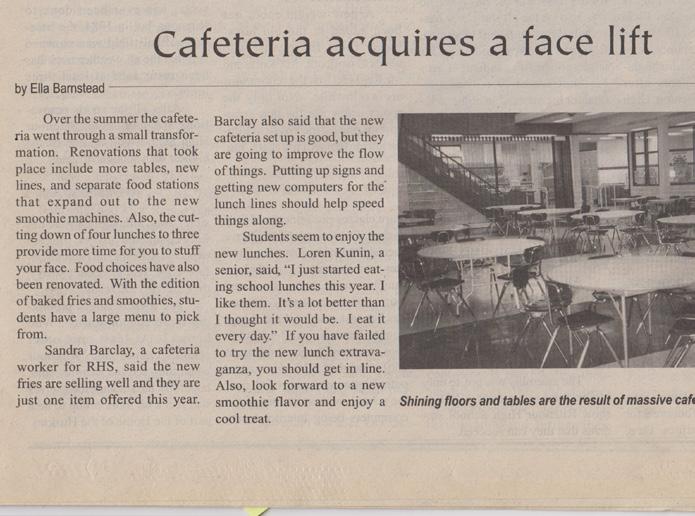
 By: Jennifer Huerta Lopez and Margaret Susovica
Photo by Danielle Haynes
The enrollment at RHS has more than tripled since 1931, leading to crowded hallways.
By: Jennifer Huerta Lopez and Margaret Susovica
Photo by Danielle Haynes
The enrollment at RHS has more than tripled since 1931, leading to crowded hallways.
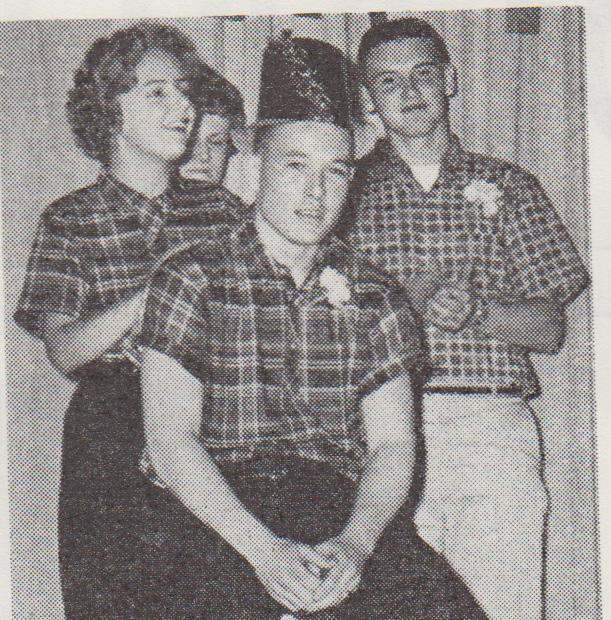



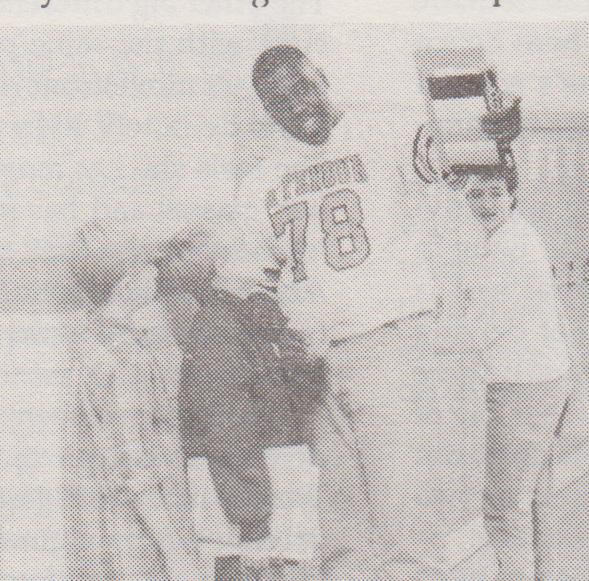

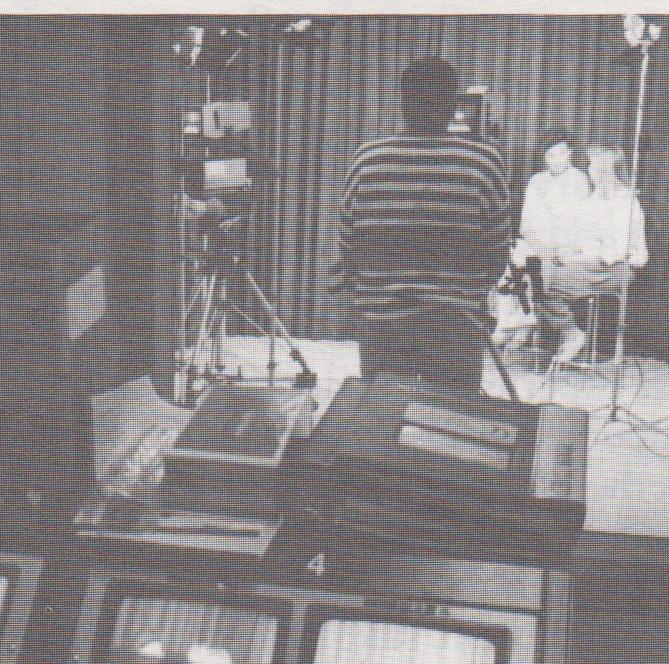

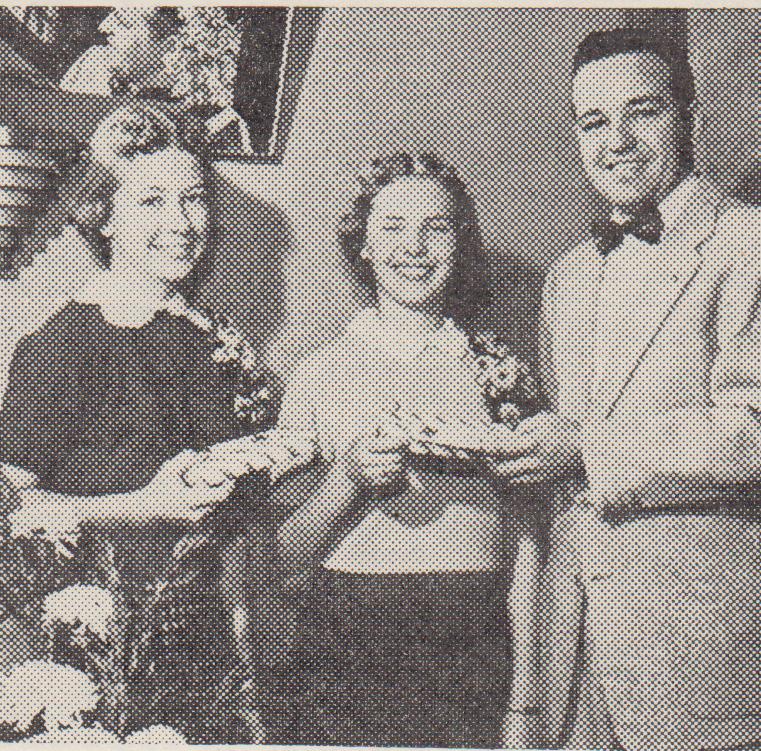
1. Chris Kilbride was a teacher before a superintendent, at which school did he teach?

a. Hoech MS b. Ritenour MS c. Marion Elementary d. Buder Elementary
2. Ritenour is one of the most diverse public schools in Missouri with no ethnic majority. True False
3. The high school did not open until 1924 due to something holding it back, what was it?
a. Couldn’t find a good place to build the school
b. Building times were set back later than the original plan
c. There was a lawsuit filed against them for where they were building the school
d. The blueprints got messed up
4. What does our yearbook “Melaureus” mean from the greek and latin roots?
a. Black & orange b. Black & yellow c. Orange & yellow d. Black & gold
5. What was the first class to graduate from the current Ritenour building?
a. 1951 b. 1942 c. 1928 d. 2001
6. When was the Ritenour Hall of Fame created?

a. 1993 b. 1987
c. 1997 d. 2002
7. The 1967-68 Ritenour school year had its peak K-12 enrollment of how many students?
a. 14,016 b. 15,619
c. 12,011 d. 13,452
8. Ritenour’s longest serving superintendent served for 36 years, who was it?
a. Chris Kilbride c. Arthur Hoech
b. Perry Allen d. Cheryl Compton
9. How many state championships did the Ritenour wrestling team win from 1944-1974?
a. 1 b. 4 c. 16 d. 10
10. How many Ritenour football players have we had go professional?
a. 3 b. 2 c. 6 d. None
11. When did Ritenour win their first volleyball championship?
a. October 19, 2016 b. November 17, 2018
c. October 16, 2012 d. November 24, 2017
12. What year did Ritenour’s baseball team win their first state championship?
a. 1988 b. 1964 c. 1951 d. 1957
13. What other Ritenour sports team won a state championship?
a. Boys Track Team b. Girls Soccer c. Boys Basketball d. Ritenours Football
Answers:
Actor and Ritenour alum Bill Chott (Class of ‘87) visited with Ritenour High School students in the media and drama classes on Aug. 26. He was in town to receive the “Missouri Legends Award” at the Missouri Book Festival.

Chott is better known for his time spent on film hits, such as “Dude, Where’s My Car”, “Galaxy Quest,” and “The Ringer.” He could also be found staring in Disney’s TV series “Wizards of Waverly Place,” as Principal Laritate. He is a great friend to Ritenour, having been inducted into the Hall of Fame in 2010, and a supporter of our Media program. The following interview was done by Danielle Haynes, a member of both the Pepper Box and KRHS.
Q: What was your favorite memory from high school?
A: I was involved in a lot of extra curriculars; I did a lot of musicals, plays, radio, and worked on the Pepper Box. But I think one of my most favorite memories was one day of my senior year when someone dared me to get on the table and dance like Elvis because I was known for doing an Elvis impression. So I got up on a table in the cafeteria, and you know there is the upper level in the cafeteria, and you know sometimes things would go on downstairs that would create a bunch of commotion, everyone gathered on the balcony to see what was going down. In this case it was just me dancing, swiveling my hips, doing this whole Elvis thing.
It felt like
performing at a rock concert, it got me an entire audience. I had a lot of audiences doing plays- and stuff like that, but never for something so spontaneous, so it makes sense that I went on to do improvisation.
Q: How do you feel the school has changed since you’ve been here?
A: It’s a lot more high tech. School safety is a completely different thing, usually the only problem we had to worry about was football players fighting each other. Now, obviously the situation is a little more serious in terms of student safety. I’m so proud of all the advancements that have happened at KRSH (old station name), and in the theater, it’s like stepping into a professional studio, and sometimes even more so, because its kept a little bit cleaner here.
Q: You mentioned you were involved in Pepper Box and radio, how do you feel like that had an impact on you becoming an actor?
A: I love doing anything that allows me to share my voice with other people, whether it is literally singing and sharing my voice, or sharing my opinions. Sometimes my opinions got me in trouble. One of the articles I did for the Pepper Box was a little bit satirical in nature, but it was because they had an autodialer. My grandmother was getting all these messages about me missing school, and they were all excused absences, so I did a satirical article about it and I kind of got called to the carpet for that. Sometimes I tend to overcommit myself, but I’m thankful that I did because there were so many avenues for me to do other things and explore myself. Not just doing classwork, but doing things that were giving me real life experience with the things I wanted to do later in life.
Q: What is your favorite memory of the Pepper Box?
A: My gym locker, mysteriously the lock disappeared. I had to come into the gym teachers office and he started reading me the riot act about the autodialer letter I had written because either his wife or someone he was involved with had developed that autodialer system and now I was attacking their integrity. He was going to make me pay for a new lock on the locker, and when it came to my graduation I had to pay for that lock before I could get my cap and gown. Having that emotionally charged conversation with him about something that I had written, that was pretty impactful. You look back on it and it is such a minor thing, but at that time, to know that I was upsetting some level of authority on any level felt good.
Q: The new auditorium was built 33 years after you graduated, how do you feel about the new space?
A: Talk about Ritenour Pride, the first time I saw that, it is just as professional as any college theater or professional venue or arena that I have performed at, and I’ve performed at a lot of them. When I was here, we would put up shows in the North Gym on that little stage there. That was it in terms of a theater for this school. But to come back and see this, basically professional venue, it lets me know that the kids coming up here have an opportunity to feel more comfortable in that environment, so that when they are in a professional environment all they are dealing with are the day to day new things that are coming to surprise them.
Q: Do you ever struggle with the day to day elements of acting?
A: Yeah, I do, as a matter of fact just before we started this interview I was telling you about how I have ADHD, I was just diagnosed last year. People always say “life is hard.” Life is extra hard when you have ADHD. Sometimes half my day is spent
Chott was inducted into the Ritenour Hall of Fame in 2010.trying to remember where I placed something, and it can be right in front of me. I can multitask, but its gonna take me three times the time that it would for someone who is neurotypical to get through that task.
I struggled with a lot of executive function issues where it came to choir, where it came to Pepper Box, where it came to KRSH. I think it prepared me to go out in the world and allow me to be a professional level, entertainer, creator, despite that setback.
Q: What was one of your favorite musicals you did during your time at Ritenour?

A: Freshman year was “Brigadoon.” Sophomore year we did “How to Succeed in Business Without Really Trying.” Junior year we did “Sugar,” and senior year was “My Fair Lady.” There is something about “My Fair Lady” in that it was such a classic, and that I grew up knowing it because it was a big part of my dad’s life. My dad did a lot of musicals and theater when he was in school. He did the part of Colonel Pickering, which was exactly the part that I was cast in. I think it was that family bond and a sense of pride for my dad to see me doing the same part that he had done so many years ago. I had the most pride in “How to Succeed in Business Without Really Trying.” I got cast in that role
based on my performance in my first year in choir. Mr. Byers, who was the choir director at the time, announced when the auditions were going to be and I came down with chicken pox so I couldn’t come into school. My dad said, “well here’s what you’ll have to do if you really want to be in this play.” So I wrote a letter letting him know how badly I wanted to be in it, what part I wanted to be in it, the part of JP Bigly, the president of the company. My dad delivered it and let Mr. Byers know how much choir meant to me and I wound up getting cast in the role without ever even auditioning for it. That was the first time that had ever happened. It’s only happened a couple of times professionally, too. It’s always an accomplishment and it is also a good shot in the arm.
Q: Who are some of the teachers who made the greatest impact on you?
A: I think it is a tie between Alan Byers and Alan Mitchell. Byers was a tough guy. He was a marine who served in the Korean War, and he expected a lot of his students. There was a lot of discipline and a lot of energy. Through his example is where I’m able to find my energy and find my joy and stage voice. I think, from a creative, rebellious, journalistic and communications edge, that would be Alan Mitchell,
who has since passed away. He had worked professionally in radio and he came back and was the director at KRSH. He knew what I wanted to do for a living, so he knew that it would take those professionals standards and conduct and ethics. He expected that of me, and that was exactly what he got. He called me to carpet because I was editorializing in the news, even though it was something I felt I needed to speak out on. At the time there was Apartheid in South Africa, and there was a resort called Sun City and a bunch of entertainers were still performing there despite the fact that people were trying to speak out against it and boycott performing there. I made a joke about Frank Sinatra and some other older entertainers who were performing there. He said “I understand your point of view and you’re coming from a good place, but that’s not the job of a journalist.” I think part of the problem with broadcasting today is that there is a really blurred line between what is journalism and what is actually editorial. Although he agreed with my point of view, he also told me that is not where you make an editorial. I appreciated that lesson and I carry that with me. I’m not a journalist, but it is what I expect of journalism.
Q: What was it like to be on a show like “Wizards of Waverly Place?”
It was a lot of fun. Oddly enough I was living back here in St. Louis. I had bought a house here, so I was splitting time between St. Louis and LA. I was doing more voiceover work. I was doing the doorman in “Curious George”, and I had made a promise with my agent that I would always fly back out there for auditions. I had auditioned for this movie called “All About Steve” with Sandra Bernhardt. I didn’t book that, but I booked the Disney audition, which was for Mr. Laritate. I thought it was just a one time thing, but it turned into a recurring job for five years. It was truly a dream job because I had never had a recurring role on any show before that, I had just been on shows and made one off appearances.
Actor and Ritenour alumni Bill Chott stopped by the KRHS studio on August 26 for an interview. He was in town to receive the “Missouri Legends Award” at the Missouri Book Festival.
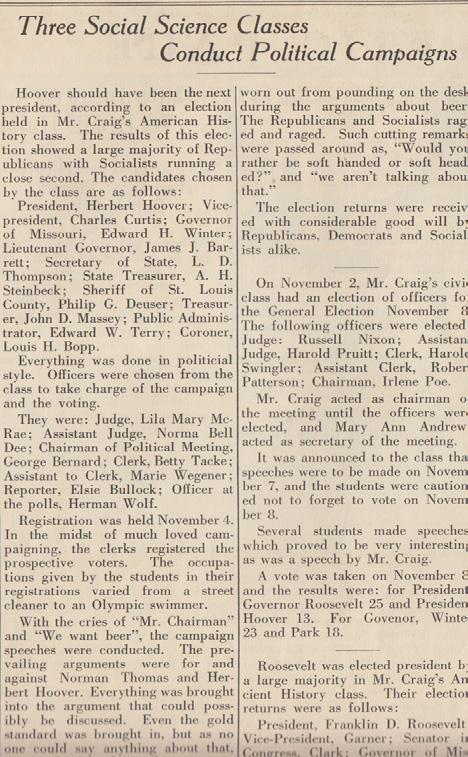
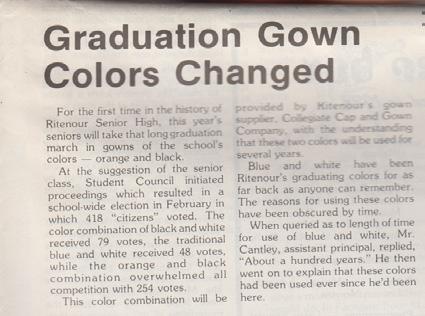



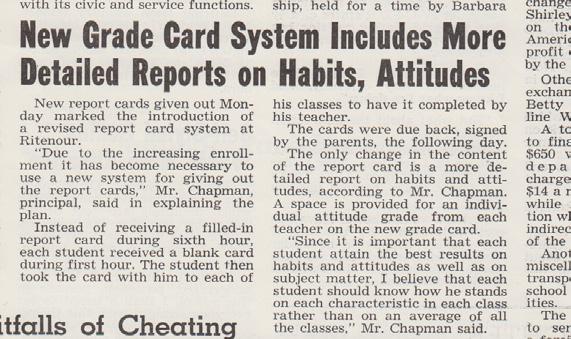

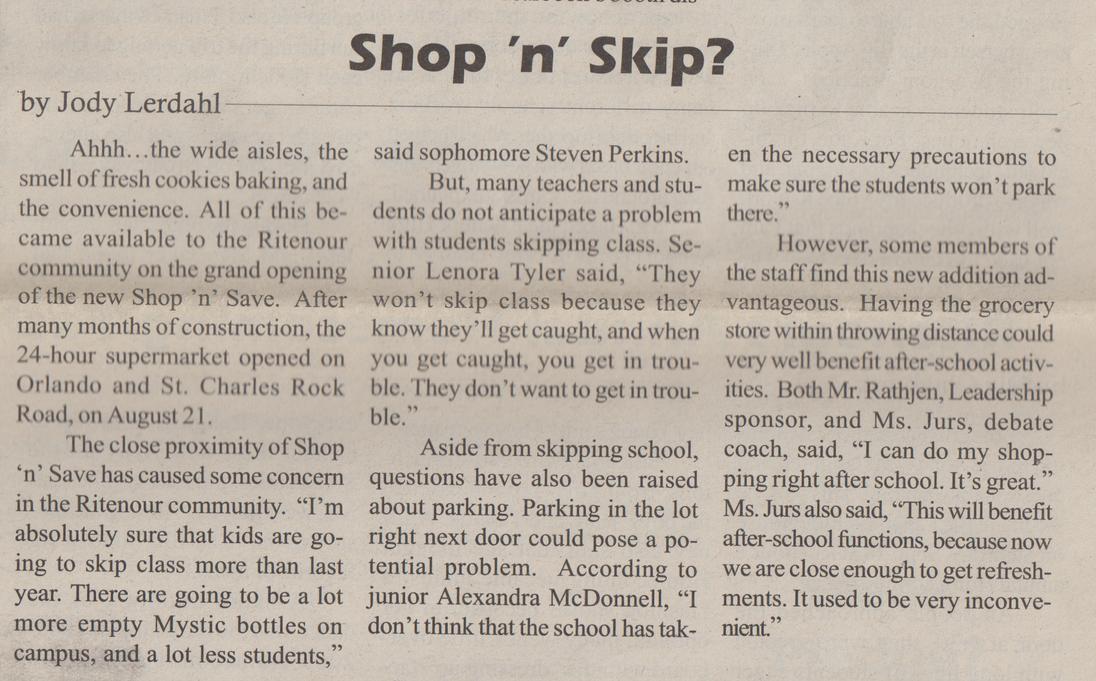
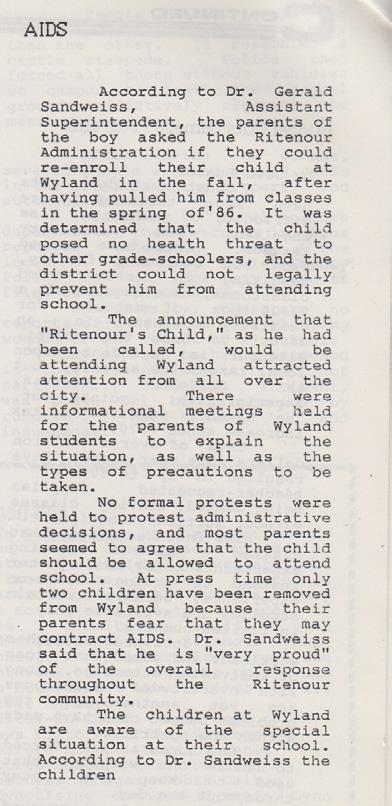
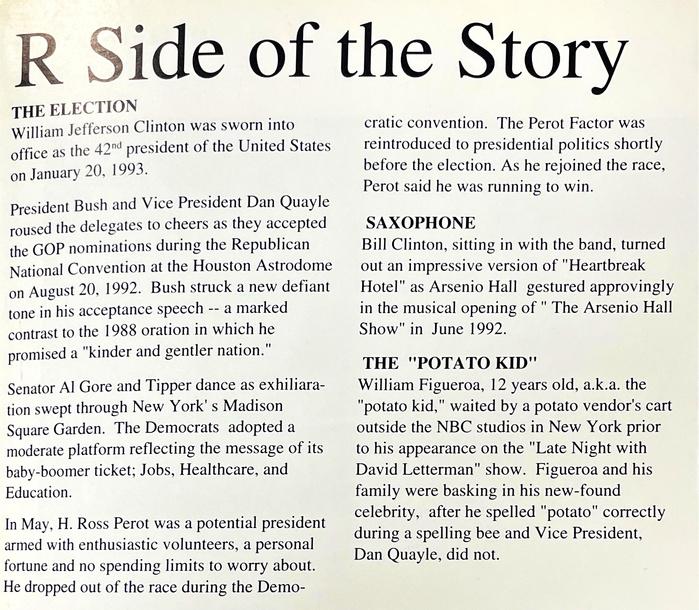
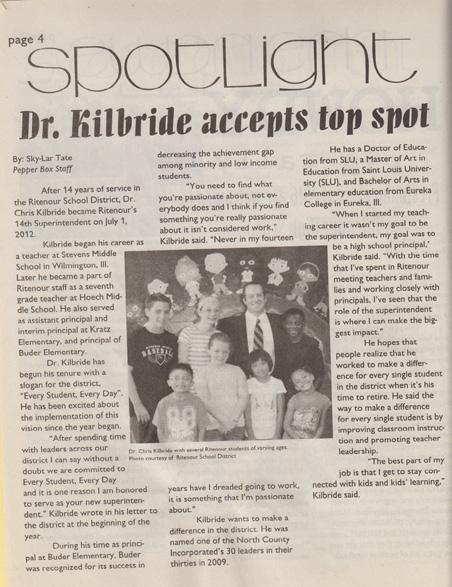


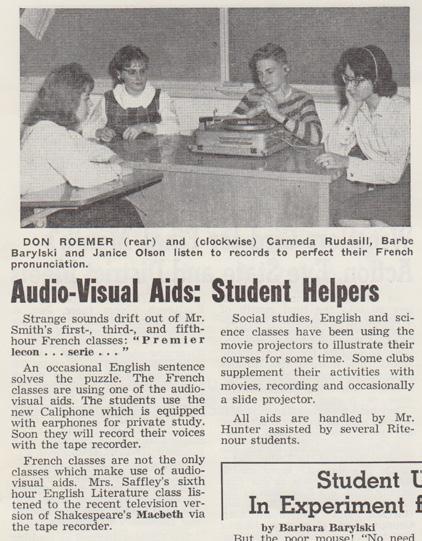


The students use the new Caliphone which is equipped with earphones for private study. Soon they will record their voices with the tape recorder. Social studies, English, and Science classes have been using the movie projectors to illustrate their courses for some time.
With its approval of the computer assisted instruction program, the board made a purchase of 64 new terminals in two parts or phases. Phase one involved putting 12 terminals at Hoech Junior High and 8 at each Kratz, Wyland, and Iveland schools. Phase two involves the installation of 4 terminals at Ritenour Senior and 8 at each Buder, Marvin, and Marion schools. Expansion costs amounted to $185,000.

Ritenour school district purchased over one hundred computers for RHS. They are spread throughout the building in the library, math lab, and publications office. The estimated cost of the computers is two hundred thousand dollars, but the district wanted to help the students better their grades and further their knowledge, and felt this was a worthwhile expense.
All students are issued chromebooks for learning usage. Cell phones are no longer allowed in our classrooms. They are only allowed
KRHS TV has a professional studio set up with cameras and green screens.
 By: Skylar Powers
By: Skylar Powers
It took students three hours to set up the hardware for a 24 minute multiscreen slide-sound presentation when the school was being audited for accreditation.
Students who entered the computer science class this year quickly discovered that the computers could not “do everything.” As a matter of a fact, accomplishing a relatively simple task was hard work.


A new cellphone and electronic device policy has come to RHS this school year. This policy states that students attending RHS can use their 5 minutes of passing time. This new policy amazed most when the word got out.
to be used during lunch along with before/after the school hours. However, many classes use cellphones to enhance the learning. For classes like Newspaper and Radio, cellphones are used to help students learn more in these courses. Along with the media classes, the music classes may use their cellphones as tuners for their instruments. In some instances, in math courses,
the calculator app may be used. There is video equipment, 3D printing and more in the school now.
All students at Ritenour High School are given a chromebook when they enroll and most classes do a majority of their work online.
Photos by Layla FoucheThe biggest change since I’ve been here has been the addition of the auditorium.
DANIELLE SWALLOWThe biggest physical changes have been the new signage that went up.
My favorite is the April Fools issues every year. I actually look forward to it.
Someone interviewed me on my son being in the military. There was a story about a road called Isolda and a bridge on that road. I grew up in that area so it was interesting to read about it.
JENNIFER WILSONThe formation of GSA was really cool (my first year here, 2006)!
KEVIN DANIELS

The biggest changes have been the number of principals we have had, and the block schedule changes.
JUANITA HARTMANN
Teaching during covid and not being able to be expressive in my face due to the mask.
RACHAEL TRIPP
Pretty much every issue has been memorable / historic lately since we’ve had so much happening - pandemic effects on students, social justice effects on students, politics affecting students.
JOHN BECKER
Social Justice movements starting after the Michael Brown shooting in Florissant.
SAMANTHA BUELTMANN
The backpack-no backpack change was pretty big. The multiple schedule changes too.
LOUISE HAAR CHAPMAN

Social Emotional Learning policies stemming from post pandemic needs.
DANIEL JONES

Different colored passes.
MARIA CAMPBELL
 By: Tori Pratt
By: Tori Pratt
The move from traditional bookbags, to clear, and then back to traditional.
TRICIA THRASHER
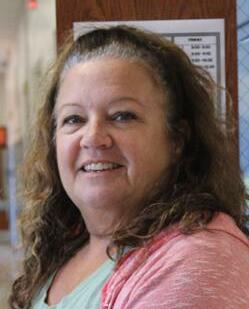
Teachers wearing jeans.
LORI GREINER
We have gone from wearing IDs to not wearing IDs.
PENNI NUTTALL
They interviewed me when I first started and I let them know my talent is whistling loud and making animal noises.
My first year teaching, I was auctioned off at the Homecoming Dance to raise money for MakeA-Wish. It was hilarious, but I felt like a piece of meat!
I believe I since I have been here I have been a part of a boy band and been an astronaut, on top of being a teacher. (April fools editions)
ZACH BUXMAN
I was honored to be featured in the pepper box during high school. It made me feel special then that students thought my story was relevant enough to write about.
KAILYN WARE c/o ‘17
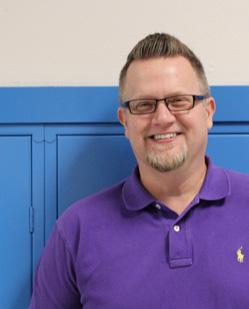



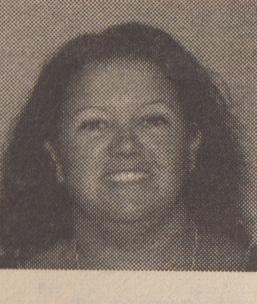




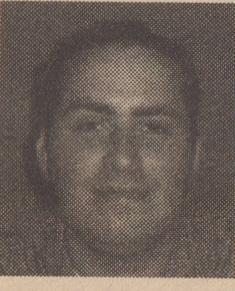 JANE BANNESTER
LISA HAMPTON
JASON SPURGEON
2004 - Ellen Alfermann 2022 - Ellen Kim
2003 - 2022 - Cynthia Hill
2003 - 2022 - Kristen Swyres 2003 - 2022 - Matt Steitz
JANE BANNESTER
LISA HAMPTON
JASON SPURGEON
2004 - Ellen Alfermann 2022 - Ellen Kim
2003 - 2022 - Cynthia Hill
2003 - 2022 - Kristen Swyres 2003 - 2022 - Matt Steitz
On January 8, 2019, Ritenour’s Activities Director, Jerry Nolen, officially announced his retirement, effective at the end of the school year.
In the 105 years of existence of the Ritenour School District, Nolen has been involved for a total of 43 years; 13 years as a student and 30 years as an employee. The following interview was conducted by Caden Gaither.
Q: From the day you graduated to the day you retired, what were the biggest changes at Ritenour?
A: The auditorium, really. I mean, that was the biggest difference right there. The bond issue was passed, and the renovations— this whole area in the main hallway, the welcome center, was renovated; they gave it what I call the “Star Trek” kind of look. Some of the offices were renovated, the activities and athletics office is new because that was part of the auditorium and performing arts area.
Q: Of some of the changes that have happened over the years, what would you say impacted you the most as a teacher (whether positive or negative)?
A: Well, from the time I was a student to teacher is the air conditioning. When I was here (c/o 1972), the only areas that were air conditioned were the library and the rooms below the library. They were brand new, newly built, so that area, the offices were new, air conditioned, but nothing else was. That has probably made the biggest difference on comfort. The other difference, I would say, is technology has changed, even from when I began as a teacher. The technology has changed, with the 1-to-1, with the computers in every classroom. They had computer labs when I started as a teacher, [but] there were no such thing as computers when I graduated as a student.
Q; Who were some students that stuck out during your years of teaching?
A: Mrs. Melly was one of them. She was one of my students when I came here to the high school. Ms. Beamer was one of the students, and Ms. Metz as well, so, I had several students in here. I’ve had a lot of great, great students. A lot of them came back here to teach, either here or in the district. There’s just so many that I couldn’t name them all.
Q; What was the experience like as a student at Ritenour in the 70s?

The counselors focused more on getting kids into college and helping them prepare for college. Back then, it was the beginning of the push where everybody needed to go to college, which is horsehockey to me. I mean, everybody doesn’t need to go to college, find something you’re happy with, do it, learn how to do it well.
The cafeteria was extremely different; the entire top floor where the classrooms are was an eating spot. There was an auxiliary cafeteria upstairs at the south end of the cafeteria. Basically, in one of the rooms, there was a dumbwaiter that they cooked food for. You could go to that line, or you could go to the line downstairs in the cafeteria, which has been remodeled as well. That was different, lunch was just massive. We didn’t eat in the foyer, but there was enough room to eat in the cafeteria. That was another change when I started teaching, we kept switching between 3 and four lunches. The staff could smoke in the teacher’s lounge. There was, a little later on after I graduated but before I came back, there was a smoking area for students. Even the office professionals could smoke at their desks, principals, and that was completely bizarre to me.
The photo above is Jerry Nolen’s high school graduation photo from 1972. The photo below is his first photo as an employee at the high school in 2002. Nolen came back to the school district in 1992 and worked at Ritenour Middle School for 10 years before coming back to the high school.

A: It was way different. We had 3,000 students in this building during my high school years. The main difference is that 9th grade was still at junior highs, so elementaries were kindergarten through 6th; 7th, 8th, and 9th were at the junior highs, and the high school was 10, 11, 12. There were 1,000 students in my graduating class. [The counseling offices hallway] was the senior hall. This was where the cool kids hung out. You were something, you were special if you had a senior hallway locker.
The library was brand new. There weren’t as many assistant principals.
There was no social media whatsoever. The “social media” at the time was, you folded up some paper and wrote a note to your significant other, and you handed it over while passing in the hallway. No hand holding, you got [detention] if you were caught kissing. That’s a huge transition. I’m so glad there was no social media, there’s pressure enough on students. There was still bullying, but not nearly as much fighting. I hardly remember any major fights…
It was just super crowded. The intersection of the T and C hallways, you couldn’t move. I mean, you guys think you can’t move now, back then you couldn’t stir it with a stick, it was so crowded. Class sizes were huge. Down in the, I call it the team rooms,
because at the time they were team teaching rooms, now that’s where Project Lead the Way rooms are, we had lecture classes for math and english of 90 plus students in there. The audio-visual was one of those rooms and we used movie projectors. No televisions, no DVDs, no computers, chalk boards. It was just hugely different.
The student body is much more diverse now than it was. It was mainly a White middle-class area. Most of it was because of [the airport], there were a lot of engineers that worked at Boeing, there were a lot of manufacturers that worked at Boeing. We thought we were diverse, we thought that the African-American students here were enough, but it’s nothing like today. I just think today is so, so much better.
Q: What motivated you to come back to Ritenour as a teacher after your graduation?
A: The teachers that I had were so involved, and they took so much interest in you, as a student, as a person. We’d see them at football games, at concerts, at musicals, and there would be 20-25 of them. Due to the nurturing that I was given, that is when I decided to become a teacher,
this was the only place I wanted to come and teach.
Ritenour is family. I felt like I was part of a small town in a big city. For me, it was the only place I wanted to teach. It really frustrated my wife because I didn’t look elsewhere. I left teaching for a while, and when I came back, I only wanted to come to Ritenour. My daughter grew up here, she graduated from here in 2001. She became an educator, she only wanted to teach at Kratz. She ended up teaching at Ritenour Middle for a few years, then transferred to Kratz where she taught as a first grade teacher, and now she’s their librarian. I still feel [Ritenour] is my family. It’ll always be my family.

Q: Was there ever a time when you doubted your decision to become a teacher at Ritenour?
A: Yes. 1980, I started in ‘77, and there was a huge labor dispute between teachers and the school board, and at that time, there was no such thing as collective bargaining. I was a young radical teacher, just out of college, and I thought I was going to make a difference for the entire people. I stood up in front of a board meeting and said, “if this doesn’t happen, I’ll quit”. It didn’t happen, I quit. Well, that
was kind of dumb, because thinking someone would take notice and say, “oh, this fantastic elementary teacher that we had quit, something’s wrong!”. Nope. Nobody cared. And those same teachers of mine I had in high school here, they were now my colleagues, and they were saying, “you can change your mind, you don’t have to quit”, and I was too idealistic. Now, let’s go to the flipside of that: I quit teaching, so I thought it wasn’t for me. When my daughter started in elementary, I started volunteering there, and I kind of felt it pulling at me again, so I wanted to come back to teaching. I became a much better teacher during those 11 years when I was gone than I ever would have, I think, if I had stayed. In teaching, you’re in your own world, and it’s hard work. You take it home with you, you never stop thinking about it. I had a job where I just went in and did my job and came home. I was in the heat, I was in the cold, I had production, there were a lot of pressures there too. I got to know what it felt like to be on the other side of the education desk, so to speak, as someone who was out of this realm. I think that made me a much better teacher, I can understand better how to deal with families. The “You Don’t Know My Story”, that became really important to me when I was out of teaching, to find out where people are coming from so you can understand. Stephen Covey said, “seek first to understand”. That was huge.
Q: Were there any school events that have stuck with you from your student years?
A: Homecoming was huge. There was a center track, so we’d have a Homecoming bonfire on Friday night. We tried it once when I was Activities Director, back in the early 2000s, and we had it on what is now the auxiliary softball field. It didn’t go as well, but I remember that bonfire. I was a band geek, so I was in marching band, so that sense of camaraderie, seeing the teachers at a lot of the events, that had a tremendous impact on me.
Activities Director Jerry Nolen poses with October Maclin and Christine Farr on “Jerry Nolen Day,” a tribute to the educator who had spent his whole life in the Ritenour School District.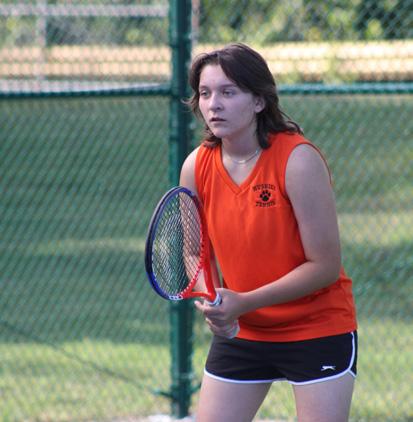
 By: Julia Lohnes
By: Julia Lohnes
Football was the main sport played since the Pepper Box started. This headline shows a Ritenour victory over Wellston (it was closed in 2010 and merged with Normandy)

A team photo of the Ritenour boys basketball team.

1988
Fall sports Cross country Boys football Girls golf Boys soccer Girls softball Boys swimming Girls volleyball Girls tennis
This story shows the results of the Ritenour gymnastics team, a team which no longer exists at the school.

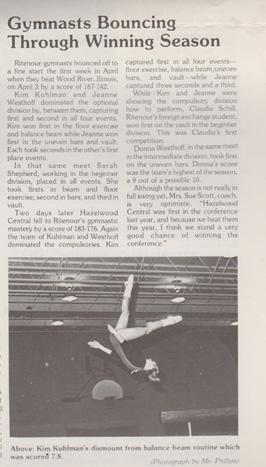
This article traced the origin of the Ritenour boys soccer team, which did not compete until 1971.

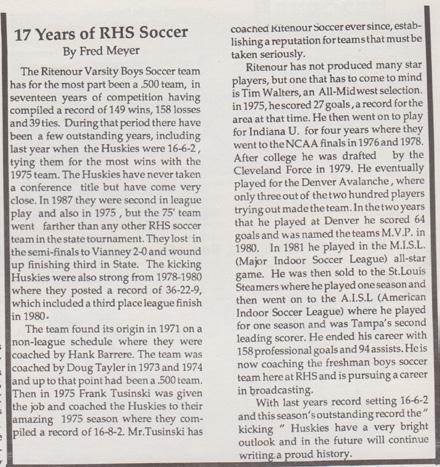
Current Ritenour Cross Country coach won an important race when he was in high school.


In the late 1990s and early 2000s, Ritenour had a roller hockey team which competed at the North County Hockey Rink

Boys basketball Girls basketball Girls swimming Boys wrestling Girls dance Sideline cheer

Boys baseball Boys golf Girls soccer
Boys tennis Girls track Boys track Boys volleyball
 Photo by Hallie Thornburgh Photo by Ron Steinschriber Left: The volleyball team got off to a strong start at the beginning of the season. Right: Danielle Haynes drives the ball straight to the green.
Photo by Danielle Haynes
Photo by Chloe Sapp Left: The football team has has been recognized as a top area team. Right: Junior Margaret Susovica prepares to return a serve.
Photo by Ron Steinschriber Left:Tyler Frost and Samantha Lohnes energerze their team against Incarnate Word.
Photo courtesy April Rose Lam
Ray Reardean dribbles the ball upfield against Ft. Zumwalt North.
Photo by Hallie Thornburgh Photo by Ron Steinschriber Left: The volleyball team got off to a strong start at the beginning of the season. Right: Danielle Haynes drives the ball straight to the green.
Photo by Danielle Haynes
Photo by Chloe Sapp Left: The football team has has been recognized as a top area team. Right: Junior Margaret Susovica prepares to return a serve.
Photo by Ron Steinschriber Left:Tyler Frost and Samantha Lohnes energerze their team against Incarnate Word.
Photo courtesy April Rose Lam
Ray Reardean dribbles the ball upfield against Ft. Zumwalt North.
100 years ago, The Pepper Box reached the giant milestone of 100 years of publishing. In this issue, we get to celebrate 200 years. So much has changed in 100 years, so let’s take a look at some of the changes that have occurred over the century.

Back in the 100th issue, our school newspaper was using Times New Roman everywhere. I mean, EVERYWHERE. The font that has since been banned from usage in schools because of the visceral reactions it gets whenever used was the only font used for stories. Can you imagine? I know, I’m shuddering thinking about it. Obviously now we have substituted that awful, awful font for Comic Sans, as it has been the only font available for decades now.
Another vast difference between the old paper and the current one is the photography. If you look back at the 100th issue, you’ll see the photos and you’ll wonder how anyone could even make them out! The photos in the old issues were always taken from an outsiders point of view. We don’t need all of those extra parts because 10 years ago, we developed a way where we can take photos with our own eyes. All of our photos are taken by the people that would’ve been in them in the old
days. You get to see exactly what the quarterback or singer sees in our papers, right before they blink. The photos basically take themselves.
Just like the change from cameras to eyeballs, we’ve had many changes in our usage of technology. The editors writing those articles 100 years ago were tirelessly typing away on keys on a keyboard, having to constantly fight “writer’s block”, a term for when the writer had no clue what to write. They typed away for minutes, hours, days, working hard to get words on papers and papers out to their consumers.
Now, our papers are written right from the brains of our editors and staff. Every word you read is just a thought from the writer. Once the writer stops their writing by thinking the words “stop writing”, the story then is presented before the writer, ready to make any edits if needed, but that feature is often skipped as our system has a 99% success rate. Once proofread, the story is ready to be sent out. This has made production of our papers extremely easy and is why we now release editions every 3 days, compared to when they had one paper out each month.
When looking at the differences between now and then, the way we play sports is probably the biggest change.
Ritenour’s proud to say their students have grown, literally. The losing streak across the board that lasted from 20302040 was too much of an embarrassment for the higher ups. So, Ritenour invested in the best training for student athletes. This training was a top secret summer camp that ended with athletes coming out twice their size and with speed the other teams could never beat. Reports of what actually occurred in this summer camp are still classified.
The way our high school is run is vastly different from before. It’s still hard to believe that students used to be taught by real adults. When that news broke, no one could imagine it. Everyone has become so used to our state of the art robot teachers. Knowing anything and everything without beating around the bush or answering questions with more questions, robot teachers have been proven superior.
Through looking at the old issues of the Pepper Box, we learned that hallways were an issue. Back then, every student walked in the hallways. Walked. The change from walking to teleporting to class was such an improvement that the overall happiness of our student body had gone up by trillions. Trying to imagine all of Ritenour’s students walking in the hallways now feels like a near impossible task.
